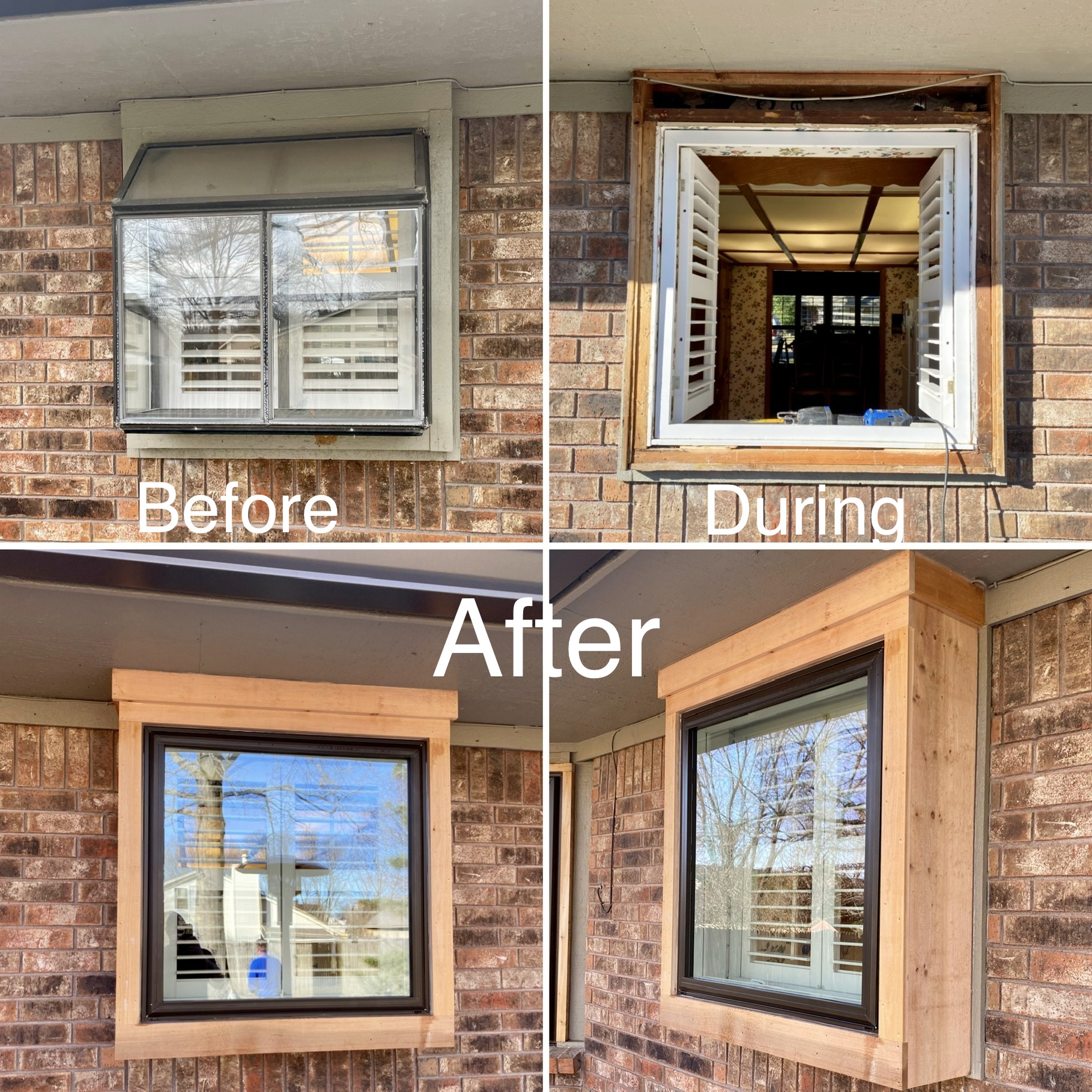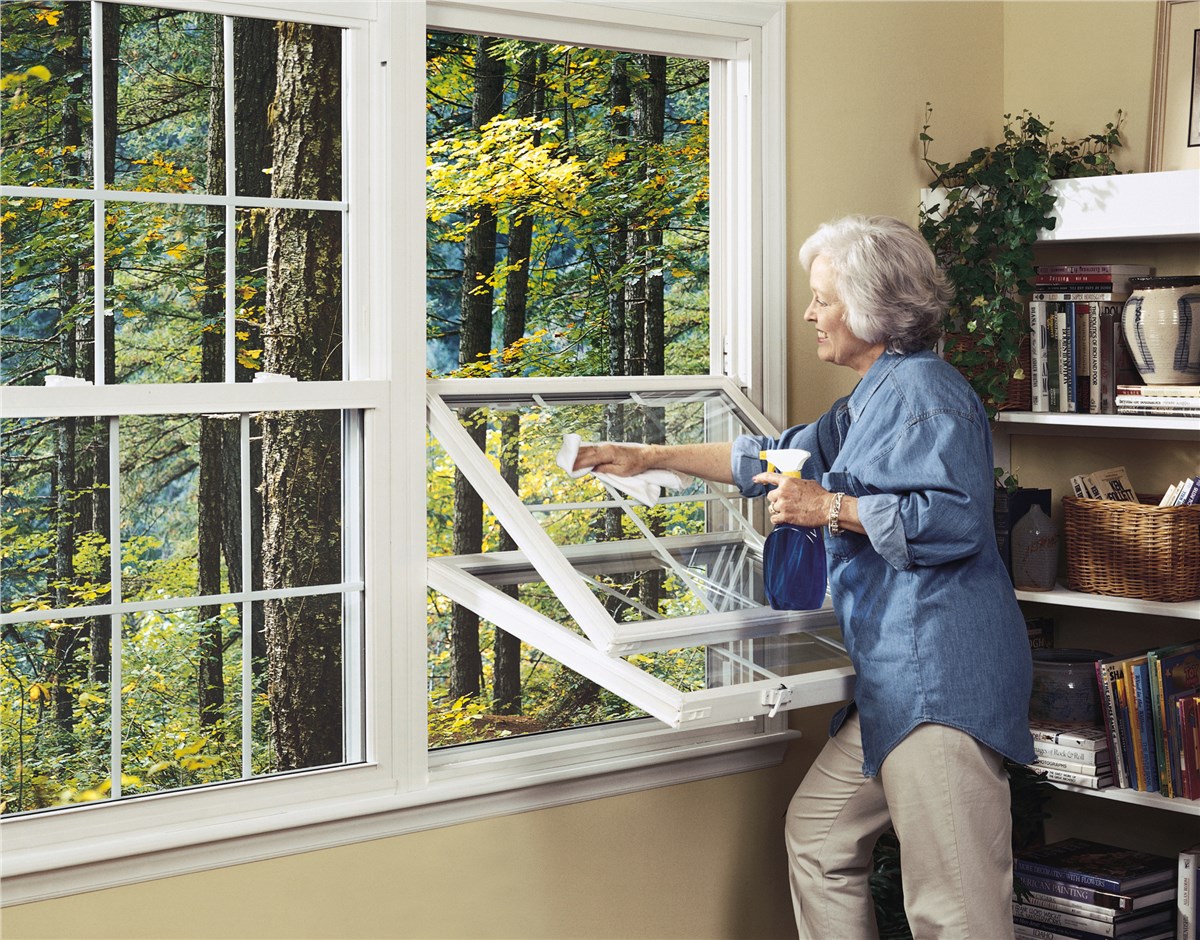Reputable Spring Window Replacement for a Modern Look
Reputable Spring Window Replacement for a Modern Look
Blog Article
Upgrade Your Home With Energy-Efficient Home Window Replacements
In the world of home improvement, the choice to upgrade to energy-efficient home window substitutes can substantially impact both the performance and looks of a home (Cypress window replacement). As homeowners seek methods to boost the performance and sustainability of their space, the option of home windows plays an essential role in accomplishing these objectives. Beyond the surface area level of plain looks, energy-efficient home windows provide a wide variety of benefits that go beyond mere visual charm. With a mindful option procedure that takes into consideration numerous factors, from glass types to installation techniques, starting this home upgrade journey could show to be a transformative venture.
Advantages of Energy-Efficient Windows

The installment of energy-efficient windows gives significant financial savings on utility expenses while improving ecological sustainability. Furthermore, energy-efficient windows can assist regulate wetness levels within the home, reducing the danger of mold and mildew and mildew development.
Beyond the monetary benefits, energy-efficient windows add to environmental sustainability by reducing carbon exhausts related to energy production. By reducing power use, these windows help alleviate the ecological influence of lighting, cooling, and heating property areas. This decrease in power intake plays an essential function in combating climate modification and advertising a greener future for generations ahead. On the whole, buying energy-efficient windows not only improves the comfort and efficiency of a home but also aligns with environmentally conscious practices.
Sorts Of Energy-Efficient Glass
Various advanced kinds of energy-efficient glass deal special residential properties that provide to different requirements and choices in boosting the sustainability and performance of structures. Low-emissivity (Low-E) glass is a popular choice made to decrease the amount of ultraviolet and infrared light that can go through the glass, thereby reducing warmth transfer. This type of glass helps preserve a consistent interior temperature, reducing the requirement for heating or cooling down systems, and eventually reducing power expenses. Another ingenious option is spectrally discerning glass, which allows noticeable light to travel through while obstructing specific sorts of infrared radiation. This helps in keeping a comfortable interior environment while lessening heat gain. Triple-pane glass, including three layers of glass with protecting gas between them, supplies boosted thermal insulation, making it extremely energy-efficient. Additionally, self-cleaning glass with a special coating that damages down and loosens dirt when revealed to sunlight can minimize maintenance requirements and maintain windows looking clean. Each kind of energy-efficient glass uses distinct advantages, permitting property owners to pick the most appropriate alternative based on their specific demands and objectives.
Elements to Consider When Selecting
When contemplating energy-efficient home window substitutes, it is crucial to meticulously assess specific factors that align with your sustainability objectives and desired energy savings. One essential element to think about is the window's energy efficiency rankings, such as the U-factor and Solar Warmth Gain Coefficient (SHGC) The U-factor actions just how well the window protects, with lower numbers indicating far better insulation, while the SHGC shows the home window's capability to block heat from sunshine. In addition, broken sliding glass door the home window framework material plays a significant duty in power effectiveness. Materials like fiberglass, vinyl, or wood with thermal breaks are excellent selections for lowering warm transfer. One more vital factor to consider is the home window style and positioning concerning sunshine exposure. Choosing the right home window style and strategically placing them can take full advantage of natural light while minimizing warmth gain or loss. Lastly, installment high quality is essential to ensuring the home windows perform as planned. Appropriate installation aids avoid air leakage, making certain ideal power effectiveness. By carefully reviewing these aspects, you can select energy-efficient home windows that enhance convenience, reduce power costs, and profit the environment.
Installation and Maintenance Tips

Normal maintenance is crucial to protecting the efficiency of your energy-efficient home windows. Inspect the windows periodically for any signs of wear, sealer, or damages degeneration. Clean the frames, tracks, and glass frequently utilizing mild soap and water to get rid of dust and gunk that can impact performance. Inspect the weather-stripping and seals for any type of spaces or tears and change them if needed to keep the windows' power effectiveness.
On top of that, lubricate moving components such as locks and hinges to ensure smooth operation. By adhering to these installation and upkeep pointers, you can improve the power efficiency of your home and extend the life-span of your energy-efficient windows.
Cost-Benefit Evaluation of Updating

Energy-efficient windows are designed to decrease warmth transfer, minimizing the requirement for heating and cooling down systems to burn the midnight oil. This can cause substantial savings on energy costs, especially in regions with severe temperature levels. Furthermore, energy-efficient windows can boost the general worth of your home, making it a lot more attractive to possible customers if you choose to sell in the future.
When link calculating the cost-benefit analysis, consider the prospective cost savings on energy expenses, any kind of offered motivations or rebates, and the life-span of the windows. While the preliminary expense may be higher, the long-term cost savings and benefits of energy-efficient home windows make them a clever investment for home owners aiming to improve their residential property's energy performance and worth.

Conclusion
In verdict, updating to energy-efficient window replacements offers various benefits such as reduced energy intake, enhanced convenience, and price financial savings. By choosing the appropriate kind of energy-efficient glass and thinking about variables like structure product and installation, house owners can optimize the performance of their home windows. Regular upkeep and appropriate setup are crucial for long-lasting performance. Overall, the cost-benefit analysis of updating to energy-efficient home windows reveals that the initial financial investment can cause significant financial savings in the long run.
When considering energy-efficient window replacements, it is crucial to meticulously assess particular variables that align with your sustainability objectives and preferred energy savings. The U-factor measures just how well the window insulates, with lower numbers suggesting far better insulation, while the SHGC shows the window's capacity to obstruct heat from sunlight. By thoroughly evaluating these aspects, you can choose energy-efficient windows that boost convenience, decrease energy expenses, and benefit the environment.
While energy-efficient home windows might have a greater in advance cost compared to typical windows, the long-term advantages commonly surpass the initial investment.In conclusion, upgrading to energy-efficient home window replacements offers many benefits such as minimized power usage, enhanced comfort, and price financial savings.
Report this page